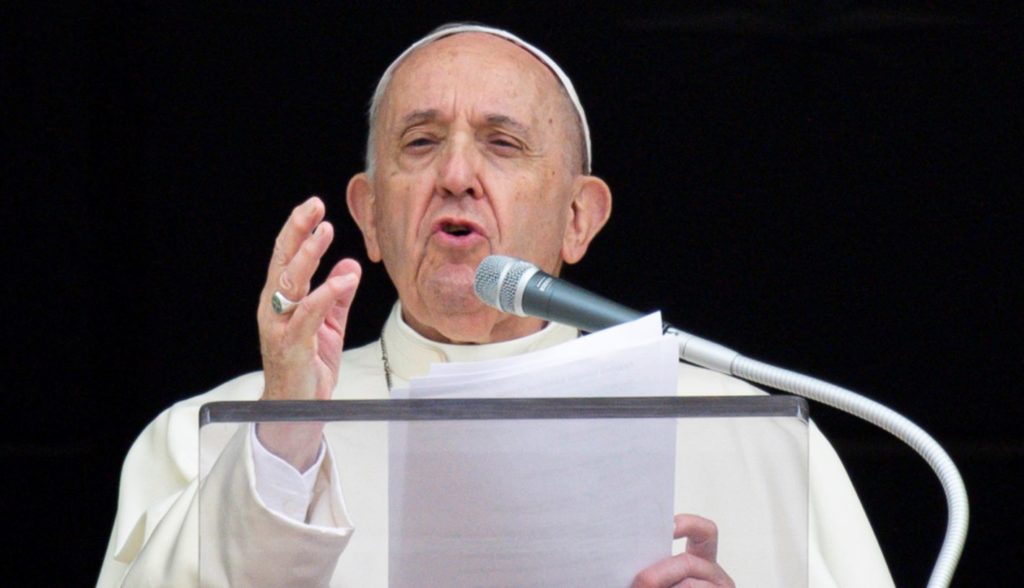









Pope Francis commented on a passage from Sunday's Gospel highlighting a "rather unusual reaction of Jesus: he becomes indignant."
Francis adds that "what is most surprising is that his indignation is not caused by the Pharisees who test him with questions about the lawfulness of divorce, but by his disciples who, to protect him from the crowds of people, scold some children who had been brought to Jesus. In other words, the Lord is not indignant with those who quarrel with Him, but with those who, to relieve His weariness, turn the children away from Him. Why?".
"Let us remember," he says, "-it was the Gospel of two Sundays ago- that Jesus, by making the gesture of embracing a child, had identified himself with the little ones: he had taught that it is precisely the little ones, that is, those who depend on others, those who are in need and cannot give back, who are to be served first (cf. Mk 9:35-37). Those who seek God find him there, in the little ones, in those in need not only of goods, but also of care and consolation, such as the sick, the humiliated, prisoners, immigrants and detainees. He is there. This is why Jesus is indignant: every affront done to a little one, to a poor person, to a defenseless person, is done to Him".
"Today the Lord takes up this teaching and completes it. In fact, he adds: "Whoever does not receive the kingdom of God like a child will not enter it" (Mk 10:15). This is the novelty: the disciple must not only serve the little ones, but must also recognize himself as small. Knowing that we are small, knowing that we are in need of salvation, is indispensable for welcoming the Lord. It is the first step in opening ourselves to him. However, we often forget this. In prosperity, in well-being, we live the illusion of being self-sufficient, of being enough for ourselves, of not needing God. It is a deception, because each one of us is a needy, small being".
"In life," the Pope continued, "recognizing oneself as small is the starting point for becoming great. If we think about it, we grow not so much thanks to our successes and the things we have, but above all in moments of struggle and fragility. There, in need, we mature; there we open our hearts to God, to others, to the meaning of life. When we feel small in the face of a problem, a cross, an illness, when we experience fatigue and loneliness, let us not lose heart. The mask of superficiality is falling and our radical fragility is re-emerging: it is our common ground, our treasure, because it is our common ground, our treasure, because it is our common ground, our treasure. With God, weaknesses are not obstacles, but opportunities.
"In fact," the Pope concludes, "it is precisely in fragility that we discover how much God cares for us. Today's Gospel says that Jesus is very tender with the little ones: "He embraced them and blessed them, laying his hands on them" (v. 16). The setbacks, the situations that reveal our fragility are privileged occasions to experience his love. Those who pray with perseverance know this well: in dark moments or moments of loneliness, God's tenderness towards us becomes - so to speak - even more present. It gives us peace, it makes us grow. In prayer, the Lord embraces us like a father embraces his child. Thus we become great: not with the illusory pretension of our self-sufficiency, but with the strength to place all hope in the Father. Just as the little ones do.












